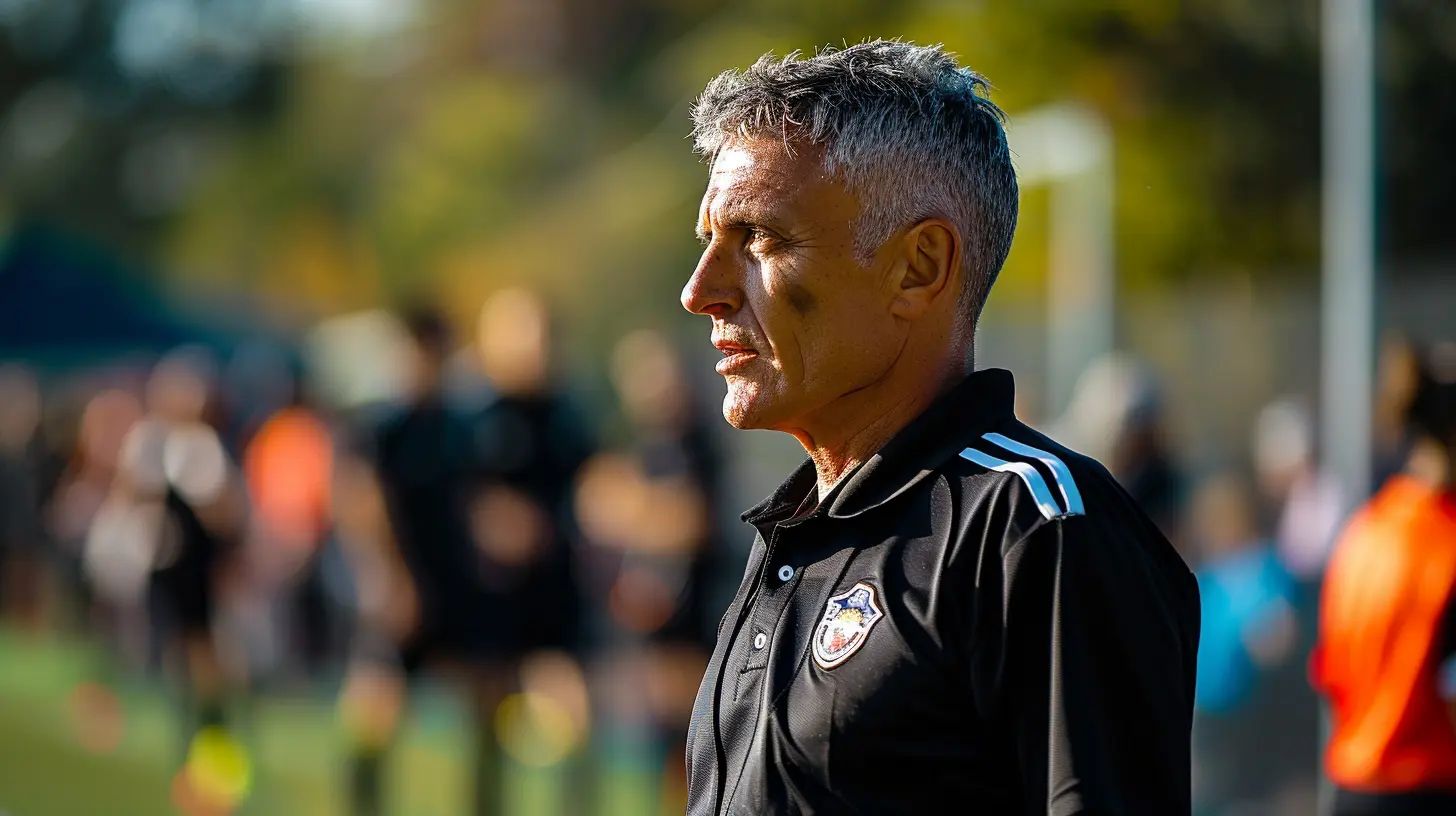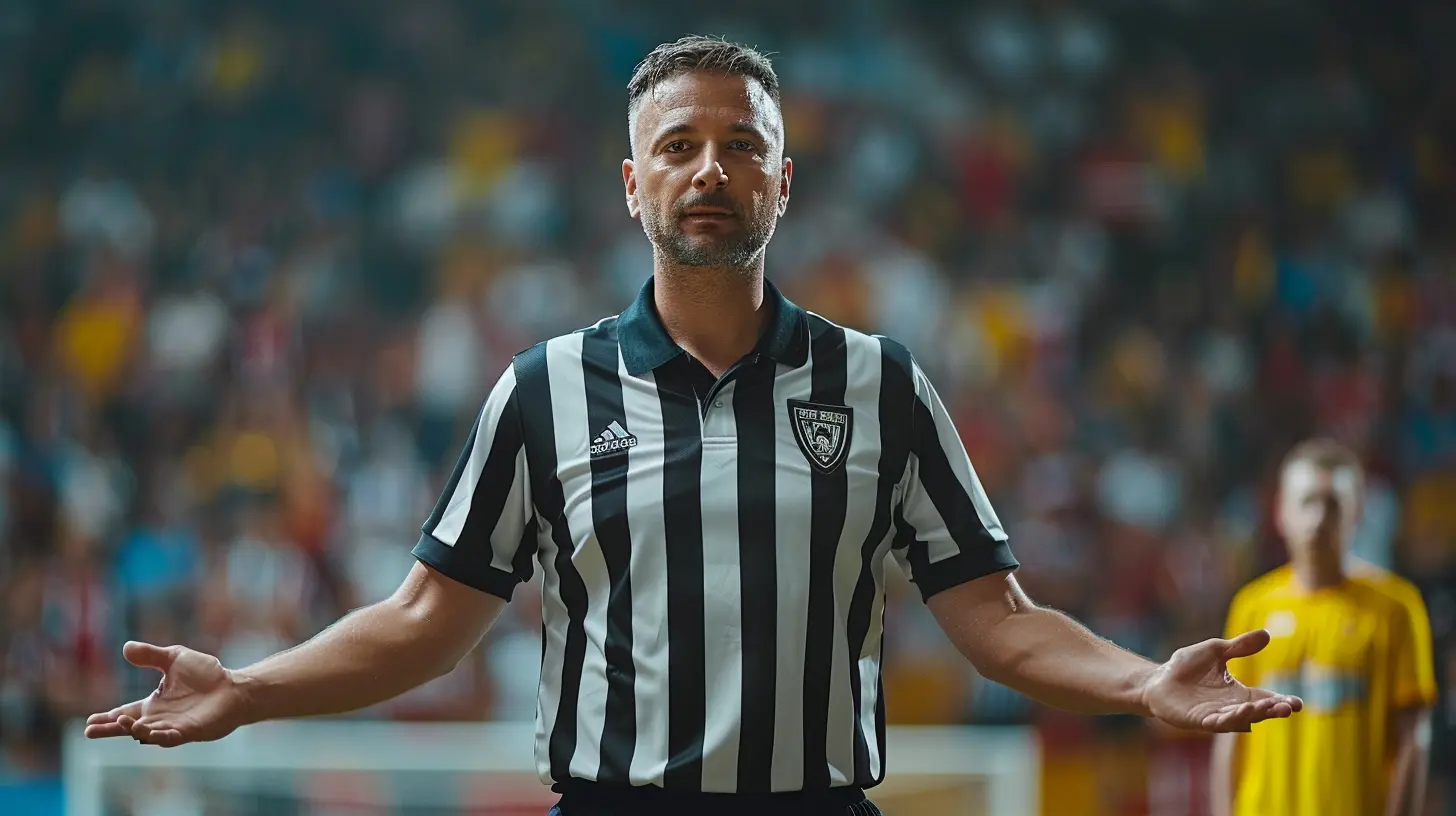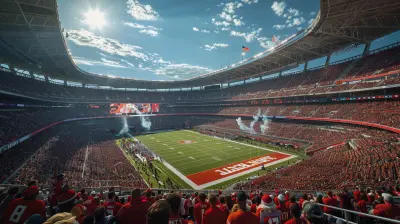Fitness and Focus: How Referees Train Like Athletes
26 April 2025
When we think about sports, our minds immediately jump to the players—those incredible athletes pushing their bodies to the limit. But there's another group on the field that often goes unnoticed, even though they train just as hard: referees.
Believe it or not, referees aren't just running around in black-and-white shirts making calls—they're highly conditioned professionals who need peak fitness and razor-sharp focus to do their job. So, how exactly do referees train like athletes? Let’s dive in. 
The Physical Demands of Being a Referee
You might think, "They’re just running up and down the field, right?" Not exactly. Referees cover serious ground during a game. In soccer, for example, a referee can run 6 to 8 miles per match—often at high intensity. Basketball referees sprint and change direction constantly, while football officials endure hours of stop-and-go movement.Not to mention, they do all of this while staying mentally sharp, making split-second decisions, and dealing with intense pressure from players, coaches, and fans. Sounds exhausting, right? That’s because it is. 
Cardiovascular Fitness: The Engine That Keeps Them Moving
Referees need exceptional endurance to keep up with fast-paced action. Much like athletes, their training includes a mix of:- Long-distance running – Helps build stamina for those marathon games.
- HIIT (High-Intensity Interval Training) – Mimics the game situation where they sprint, recover, and go again.
- Agility drills – Quick direction changes are a must, especially in sports like basketball and football.
Unlike a player who gets subbed out, referees are on the job for the entire game. That means they can’t afford to slow down. Their fitness level has to be top-notch to keep making accurate calls from the first whistle to the last. 
Strength and Conditioning: More Than Just Running
Referees don’t need to bulk up like football players, but strength is still crucial for their performance.- Core strength – A strong core helps maintain balance and stability, especially when running or dodging players.
- Leg strength – Endurance aside, strong legs allow them to accelerate quickly when the pace of play picks up.
- Upper body strength – Needed for maintaining good posture and preventing fatigue from creeping in.
Strength training for referees usually includes bodyweight exercises like push-ups, squats, and lunges, mixed with weight training for added power. 
Mental Fitness: Staying Sharp Under Pressure
Fitness isn’t just about muscles and endurance—it’s also about mental toughness. Referees don’t just watch the game; they control it. One bad call can change the course of a match, and having dozens of players, coaches, and thousands (or millions) of screaming fans on your back is no joke.So, how do referees train their minds to stay sharp?
- Meditation and mindfulness – Helps them stay calm in high-pressure situations.
- Visualization techniques – Many referees picture different game scenarios in their minds, preparing themselves for quick decision-making.
- Reaction drills – Designed to improve their ability to make split-second judgments.
Mental resilience is just as important as physical fitness. A distracted or unfocused referee can miss crucial calls—and that can’t happen.
Nutrition: Fueling for Performance
Would you run a marathon on an empty stomach? Of course not. Referees need the right fuel to perform at their best.- Carbohydrates – Provide energy for long games and training sessions.
- Protein – Helps with muscle recovery after intense physical exertion.
- Hydration – Staying hydrated is crucial, especially in sports played in extreme temperatures.
Many referees follow strict diets similar to athletes, ensuring they have the energy and endurance to last the full game without experiencing fatigue.
Recovery: Bouncing Back for the Next Game
Referees often officiate multiple games in a week, sometimes even back-to-back. Without proper recovery, fatigue can creep in, slowing them down both physically and mentally.- Stretching and mobility work – Keeps muscles loose and prevents stiffness.
- Ice baths and massages – Help reduce inflammation and speed up recovery.
- Sleep – Hands down, the best recovery tool. A tired referee is a slow referee.
Taking care of their bodies allows referees to stay sharp game after game, no matter how demanding their schedule is.
Technology in Referee Training
Gone are the days when referees just jogged a few laps for training. Today, technology plays a significant role in refining their fitness and decision-making abilities.- GPS trackers – Measure performance, tracking distance and intensity during matches.
- VR and simulation training – Helps referees practice calling plays in fast-paced environments.
- Heart rate monitors – Ensure they’re training at optimal intensity levels.
With these advancements, referees can fine-tune their fitness and focus in ways that were never possible before.
The Unseen Effort Behind Every Call
Next time you watch a game, take a moment to appreciate how much effort referees put into their training. They don’t just show up and officiate—they train like athletes, pushing their bodies and minds to the limit to ensure the game runs smoothly.So, while players may steal the spotlight, referees are right there with them, grinding just as hard. Because when it comes to fitness and focus, they’re every bit as elite as the athletes they officiate.
all images in this post were generated using AI tools
Category:
RefereeingAuthor:

Umberto Flores
Discussion
rate this article
6 comments
Soleil McRae
This article brilliantly highlights the intense training regime referees undergo, demonstrating that their physical fitness and mental focus are as crucial as those of the athletes they oversee. A must-read!
May 14, 2025 at 4:22 AM

Umberto Flores
Thank you for your kind words! I'm glad you found the article insightful. Referees indeed deserve recognition for their dedication and training.
Xena Hensley
Referees embody strength and precision, champions of the game.
May 8, 2025 at 8:08 PM

Umberto Flores
Thank you! Referees indeed require immense dedication and skill to maintain their peak performance on the field.
Zayn McCool
Great article! It’s inspiring to see the dedication referees put into their training. Their focus and fitness truly mirror athletes, highlighting the crucial role they play in sports.
May 6, 2025 at 2:22 AM

Umberto Flores
Thank you! I'm glad you found the article inspiring. Referees truly deserve recognition for their hard work and dedication!
Nina McDermott
Referees deserve more recognition for their intense training!
April 30, 2025 at 8:35 PM

Umberto Flores
Absolutely! Referees undergo rigorous training that requires immense dedication and skill, much like athletes. Their contributions deserve greater acknowledgment!
Tatianna Fields
Referees' rigorous training showcases their vital role in sports, emphasizing that peak performance and sharp focus are essential for fair play.
April 29, 2025 at 8:22 PM

Umberto Flores
Thank you for your insight! Indeed, the rigorous training of referees is crucial for ensuring fairness and integrity in sports. Their dedication mirrors that of athletes, highlighting the importance of fitness and focus in maintaining high standards.
Ulysses Pace
Absolutely loved this article! It’s so inspiring to see referees train with the same dedication as athletes. Their focus and fitness are crucial to the game, and it’s fascinating to learn about their rigorous routines. Cheers to the unsung heroes of sports! Keep up the great work!
April 27, 2025 at 6:26 PM

Umberto Flores
Thank you so much for your kind words! I'm glad you found the article inspiring—referees truly are essential to the game!



